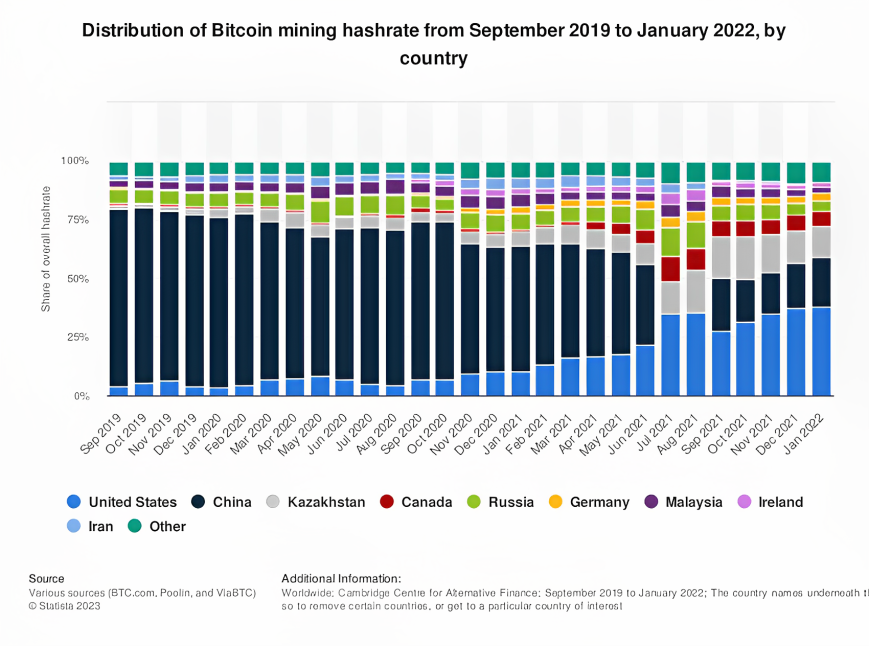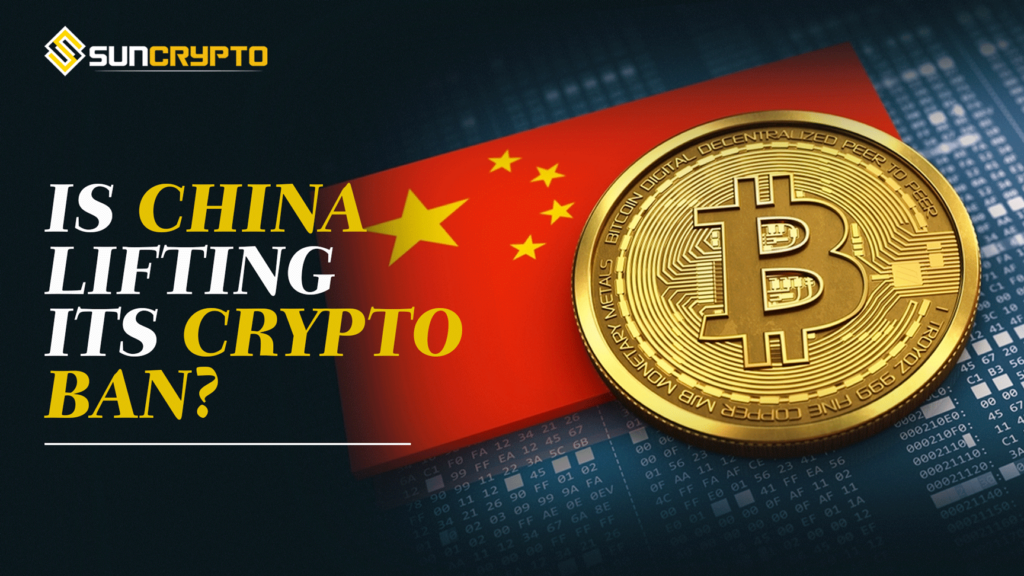China emerges as an intriguing character in the broader tapestry of the global economy, casting its spell on the world of cryptocurrencies. Its enigmatic relationship with these digital marvels has been nothing short of a wild trip, swinging from acceptance to Crypto Ban and back again.
As we stand at the crossroads of this enthralling narrative, questions linger: What lies behind China’s notorious bans, and what could the lifting of its crypto ban mean for the brave new world of digital assets?
So, prepare yourself to embark on an intellectual adventure as we decrypt the enigma that is China’s crypto landscape. Delve into the winding motivations that have driven this economic titan to take center stage in shaping the fate of cryptocurrencies. As whispers of change echo through the corridors of power, the potential consequences reverberate across continents, infusing the air with a tangible sense of anticipation.
Crypto Ban: Unmasking China’s Cryptocurrency Crackdown
China has a longstanding history of imposing restrictions on cryptocurrencies. The initial attempt occurred in 2013 when the People’s Bank of China (PBC) introduced regulations prohibiting financial institutions from engaging in transactions involving virtual currencies such as Bitcoin.
However, this did not make it illegal for Chinese citizens to purchase, store, or transfer cryptocurrencies. Instead, it created additional difficulties in accessing cryptocurrencies through exchanges. The primary objective of this initial ban was to slow down Bitcoin trading, which had gained widespread acceptance to the extent that major businesses in the country, including Baidu, the largest search engine, started accepting it as payment.

In 2017, during the bullish crypto market, Chinese officials further intensified their actions by implementing stricter measures specifically targeting Initial Coin Offerings (ICOs). ICOs refer to digital tokens representing ownership stakes in new crypto projects and had experienced a significant surge in trading.
Unfortunately, many of these ICOs turned out to be fraudulent due to the absence of regulations. To address the ICO frenzy, China banned all platforms offering ICOs and required exchanges to refund the invested funds to the investors.
In 2021, China adopted its most severe measures to date against cryptocurrencies. With Bitcoin’s value around $55,000, the country’s State Council officially prohibited crypto mining. Consequently, the hash rate on Bitcoin’s network plummeted by 50%, causing Bitcoin’s price to drop to approximately $30,000 in the following months.
In addition to the ban on Bitcoin mining, China’s regulatory bodies outlawed all crypto trading and transactions. Sending cryptocurrencies, as well as accepting coins like Bitcoin and Ethereum, became illegal for residents, businesses, and banks. Despite these restrictions, there are currently no specific policies against holding digital assets. Therefore, Chinese residents who already possess cryptocurrencies in a wallet are not violating any existing laws.
What’s Behind the Great Wall?
China’s decision to prohibit cryptocurrencies was driven by multiple factors. These factors encompassed concerns over consumer protection due to the association of cryptos with scams and money laundering, the ambiguous legal status of digital currencies, the potential for capital flight, the devaluation of the yuan, and environmental worries stemming from Bitcoin’s high energy demands.
China’s motivation to govern Central Bank Digital Currencies (CBDCs) and metaverse projects was also a contributing factor. In fact, China is actively engaged in the development of an official CBDC called the “digital yuan,” and cities like Shanghai have committed substantial investments toward national metaverse initiatives.
Apart from that, the ban had a significant impact on the global crypto industry. China’s prohibition on Bitcoin mining resulted in a notable decline in the hash power of the Bitcoin blockchain. Many of China’s Bitcoin miners relocated to countries that were more favorable to the crypto industry.

Nevertheless, the total hash rate of Bitcoin continued to rise in the months following the ban, surpassing the pre-ban levels by January 2022. Additionally, it was observed that mining activity in China reappeared on Bitcoin’s network in September 2021, indicating that several Chinese mining pools are still operating covertly.
Crypto Spring in China: Is the Dragon Unleashing its Digital Wealth?
In spite of the strict restrictions, the ban on cryptocurrencies in China has not completely halted activity in the industry. Crypto enthusiasts in the country have found ways to bypass the restrictions, leading to the emergence of underground crypto markets. However, there are recent indications suggesting a potential change in China’s position regarding cryptocurrencies.
The latest development suggests that China may be relaxing its stringent stance on cryptocurrencies. This news holds significant importance, especially considering that one of the most impactful events in the crypto market occurred in 2021 when China implemented its most substantial crackdown on digital assets.
This crackdown was part of a broader initiative to regulate the financial technology sector and align with China’s goal of introducing its own digital currency, the Digital Yuan.
The global crypto community is closely monitoring signs of a possible shift in China’s stance on cryptocurrencies. Nonetheless, the specific details of this change remain unclear, and the outcome of these developments is yet to be determined.
It is important to note that even if China were to ease its restrictions, it would likely maintain strict control over the sector to ensure consumer protection, mitigate potential financial risks, and retain authority over its digital currency initiatives.
Impending Consequences If China Lifts Crypto Ban!
The potential lifting of China’s crypto ban could have a profound impact on the global crypto market. Considering China’s status as the world’s most populous country and one of the largest economies, embracing cryptocurrencies could stimulate worldwide demand, drive prices up, and potentially encourage wider acceptance of digital currencies.
Furthermore, it might open doors for the resurgence of crypto mining within the country, which was previously a major Bitcoin mining hub worldwide.
According to Changpeng Zhao, the CEO of Binance, the lifting of China’s crypto ban holds immense significance. The recent broadcast of a crypto-related news segment by China Central Television (CCTV) has already caused ripples within Chinese-speaking communities. Zhao acknowledges that similar media coverage in the past has often resulted in bullish market trends, though he does not make any definitive predictions about the future.

Nevertheless, the removal of the ban on cryptocurrencies could present challenges as well. Increased market volatility is one potential outcome, and regulatory issues concerning consumer protection, money laundering, and financial stability may arise as authorities grapple with the changing landscape.
The potential reversal of China’s crypto ban is a significant development that carries implications for the global crypto market. However, until more concrete information becomes available, the true extent of its impact remains uncertain.
Conclusion
The potential lifting of China’s crypto ban holds significant implications for the global cryptocurrency market. While China has a history of imposing restrictions on cryptocurrencies due to concerns over scams, money laundering, capital flight, and environmental issues, recent indications suggest a possible change in China’s stance.
Lifting the ban could stimulate worldwide demand, drive up prices, and encourage wider acceptance of digital currencies. The resurgence of crypto mining within the country is also a possibility. However, challenges such as increased market volatility and regulatory issues may arise. The true extent of the impact of lifting the ban remains uncertain until more concrete information becomes available.
To know more about China lifting Crypto Ban, go check out SunCrypto Academy.
Disclaimer: Crypto products and NFTs are unregulated and can be highly risky. There may be no regulatory recourse for any loss from such transactions. All content provided is for informational purposes only, and shall not be relied upon as financial/investment advice. Opinions shared, if any, are only shared for information and education purposes. Although the best efforts have been made to ensure all information is accurate and up to date, occasionally unintended errors or misprints may occur. We recommend you to please do your own research or consult an expert before making any investment decision. You may write to us at [email protected].





